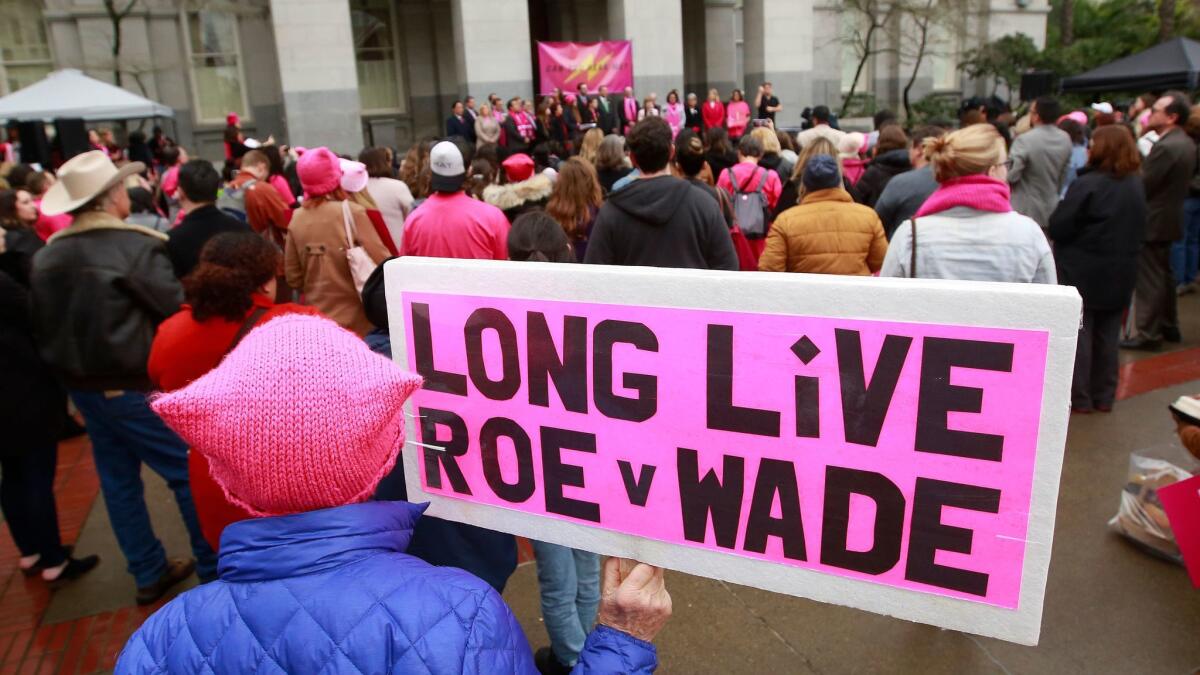Opinion: Women who want an abortion are not seeking services. They’re seeking an abortion, and they should get one

To the editor: While I applaud Diana Greene Foster’s groundbreaking research on the deleterious effects of being denied an abortion, I found odd her conclusion — that we need more “government, employer, community and family supports for struggling mothers.” (“Restricting access to abortion makes poor women poorer,” Opinion, Jan. 22)
She seems to believe that her findings should not figure into political debates on abortion access. Yet the most logical response would be to call on legislators in some states to remove barriers they have imposed that hinder women’s ability to obtain a timely abortion (such as mandatory waiting periods and requirements of parental permission).
These barriers are not only unwarranted but unjust. Clearly, as Foster’s research shows, they harm mostly poor women, who may already be contending with domestic violence, addiction or depression.
The women in Foster’s study were not asking for more support from anyone. They simply wanted to terminate an unwanted pregnancy — and missed an artificial deadline by a few days.
Paula Tavrow, Los Angeles
The writer is director of the Bixby Program in Population and Reproductive Health at UCLA’s Fielding School of Public Health.
..
To the editor: Foster hopes that the availability of hard data on the effects of denying abortions to the women who seek them will lead to an expansion of services and an opening of our hearts, minds and wallets.
Ironically, many of those who would deny abortions to women favor smaller government and are critical even of the meager safety net available to poor mothers.
It seems that some of the “pro-lifers,” who are so passionately concerned about the unborn, have less compassion for the suffering of already born children and their families.
Michael Telerant, Los Angeles
Follow the Opinion section on Twitter @latimesopinion and Facebook
More to Read
A cure for the common opinion
Get thought-provoking perspectives with our weekly newsletter.
You may occasionally receive promotional content from the Los Angeles Times.





